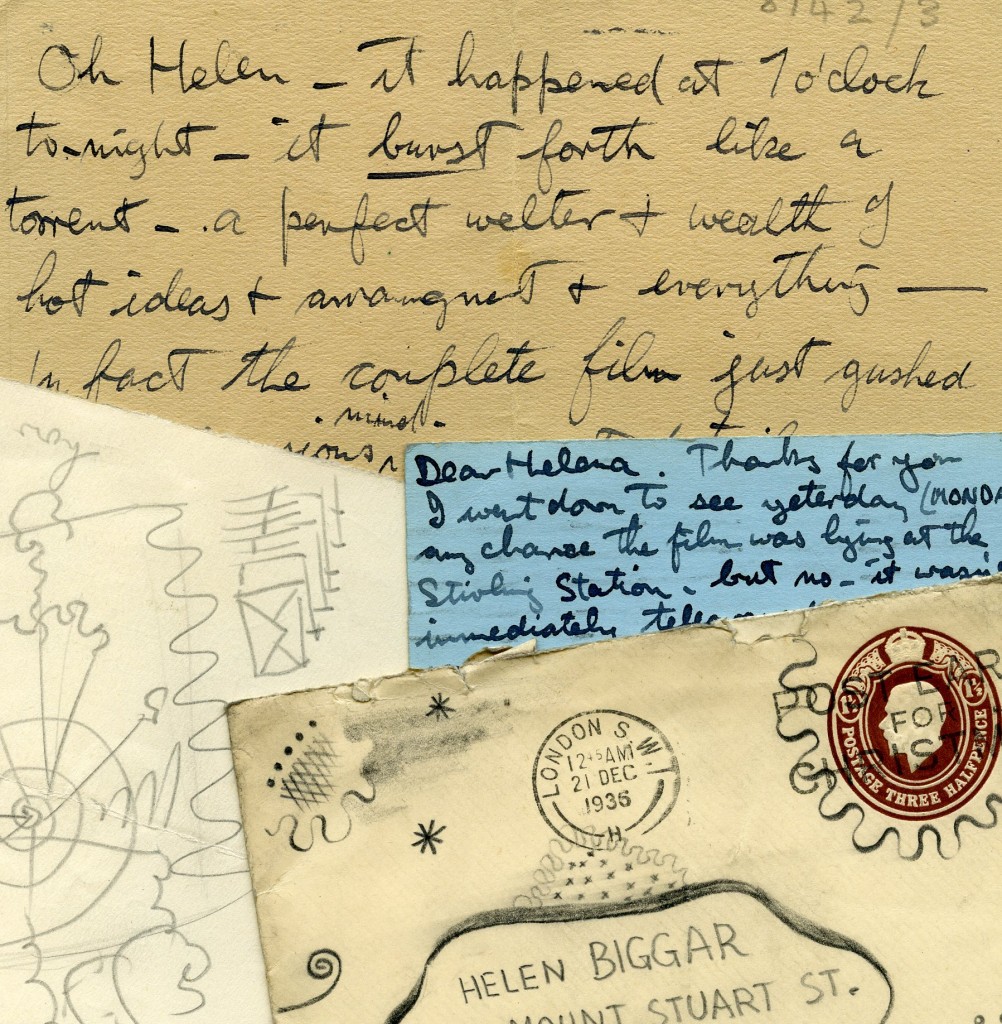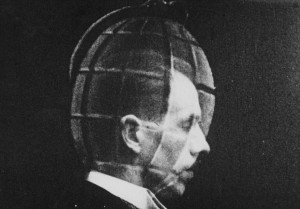This week we were delighted to receive a fantastic new addition to our Norman McLaren Archive. The material consists of a set of 64 letters, letter-cards and postcards sent by McLaren to his friend (and fellow filmmaker) Helen Biggar in 1936 and 1937. McLaren met Biggar when studying at the Glasgow School of Art and in 1936 they made the anti-war film Hell Unltd (which had a recent screening at the GFT). McLaren’s letters to Biggar detail the film’s planning, editing, promotion and distribution. A letter written on 21 April 1936 captures McLaren’s excitement at a moment of creative inspiration:
“Oh Helen – it happened at 7 o’clock tonight – it burst forth like a torrent – a perfect welter and wealth of hot ideas and arrangement and everything – in fact the complete film just gushed from my subconscious mind in great detail – gee its marvelous – our new film…”

The film McLaren and Helen Biggar made was a stinging attack on the re-armament of Europe and consequent rush towards conflict. The film was as experimental as it was political mixing various styles and techniques – animation, archive footage, graphs and titles, and acted scenes – culminating in a rallying call for the audience to take direct action and demonstrate against the war. The film made a great impact in the febrile political climate of the time and was widely screened (McLaren’s letters detailing their arrangements with Kino Films, a left-wing film distributor).

The letters cover a key point in the development of McLaren’s filmmaking career. In the autumn of 1936 McLaren took up his first post as a professional filmmaker joining the team of young talent that John Grierson assembled at the GPO Film Unit. McLaren writes about his work at the GPO, comparing the methods and techniques to those he had previously employed in his amateur work. He still however had ambitions to make his own films outside the GPO Film Unit and discusses various planned project with Helen Biggar. McLaren also writes about his visit to Spain in November 1936 to shoot footage for the film The Defense of Madrid, which documented the resistance of the Republican forces fighting Franco’s Nationalist army.

Following their collaboration on Hell Unltd McLaren and Biggar’s career paths diverged. In 1939 McLaren moved to New York and in 1941 he took up an invitation from John Grierson to join the newly established National Film Board of Canada. Helen Biggar became a stage designer for the Glasgow Worker’s Theatre Group and the Glasgow Unity Theatre, while continuing her work as a sculptor. In 1945 she moved to London, later becoming wardrobe mistress and costume designer for Ballet Rambert.